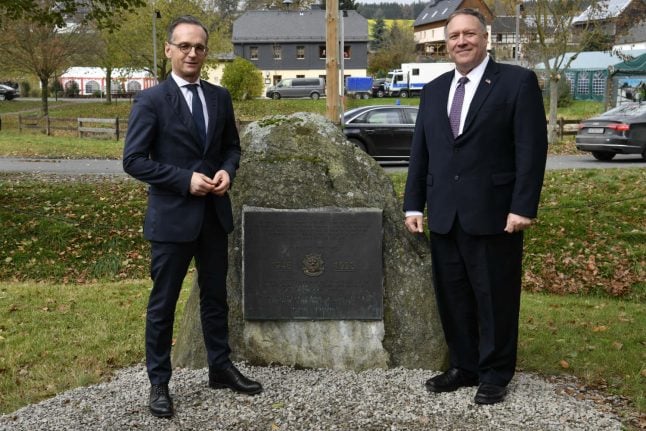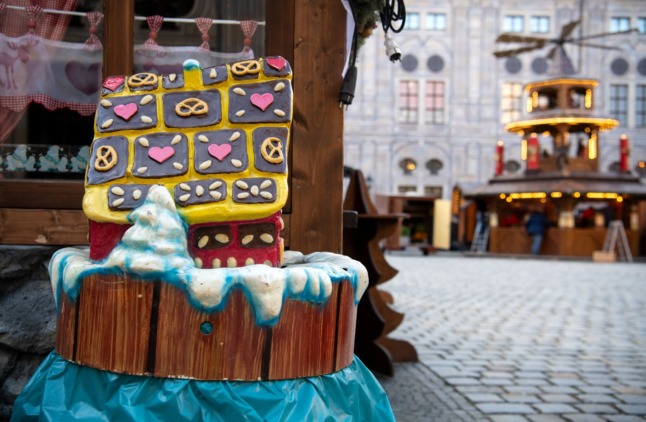America's top diplomat is on a two-day tour of Germany ahead of the 30th anniversary of the fall of the Berlin Wall. He is to meet with demonstrators from the 1989 peaceful revolution that brought the communist regime down, and give a speech in the German capital.
On the ground in Mödlareuth, Pompeo was greeted by Foreign Minister Heiko Maas, with whom he visited the remains of a 3.3-metre tall concrete wall that had slashed a 700-metre scar through the town from 1966 to 1989.

Pompeo's convoy driving through Gefell, Thuringia. Photo: DPA
From 1986, Pompeo was one of 300,000 US soldiers stationed in Europe at the height of the Cold War, compared with around 30,000 today.
The then young US Army lieutenant stood opposite watchtowers and barbed wire that had blocked entry into the communist German Democratic Republic (GDR).
“It was a bit of a walk down memory lane for me, memory Strasse,” Pompeo said of the visit at a press conference later.
“You could say I saw a piece of history that I was a tiny little part of back in the late 1980s,” he said, adding that he was “proud to play that small role”.
“I think it's indicative of the incredibly important relationship of our two countries over decades and decades and decades as we move forward together as well.”
READ ALSO: 'Lots of issues with Germany': Pompeo starts Europe tour in Berlin
The young US Army lieutenant stood opposite watchtowers and barbed wire that had blocked entry into the communist German Democratic Republic (GDR).
“Nowhere else was the tragedy of Germany's division as visible as here,” local museum director Robert Lebegern told AFP.
Tightly controlled
Mödlareuth lies on a small brook that divides modern-day Bavaria and Thuringia states, but which became an international border when the two Germanys — the GDR and the Federal Republic of Germany — were founded in 1949.
As around western enclave Berlin, the GDR placed barbed wire, minefields and guns triggered by tripwires along its hundreds of kilometres of border with the West, which were also intensively patrolled.
In the village, the GDR first erected a fence in 1952, followed more than a decade later by the wall.
Recalling the brutal overnight partition of the capital, the oppressive border infrastructure earned the village the nickname of “Little Berlin”.
Since reunification in 1990, the fortifications have become a tourist attraction that draw 70,000 visitors per year.
Still today, the village has two mayors, two telephone and postal codes, and distinct German dialects.

German Minister Heiko Maas (l) and Mike Pompeo (in middle) in Mödlareuth along the former Wall. Photo: DPA
Tough meetings
Thursday is the more ceremonial part of Pompeo's trip, as it includes visits to US troops at their Bavarian training grounds, and to Leipzig.
In addition to Mödlareuth, he is to stop in Halle to commemorate victims of an attempted far-right mass shooting at the city's synagogue last month.
READ ALSO: Pompeo voices concern over German kippa warning to Jews
Friday could bring tense discussions, as Pompeo meets Chancellor Angela Merkel and key members of her cabinet.
That will provide each with an opportunity to raise questions on issues where Berlin and Washington fail to see eye to eye.
They include Iran's uranium enrichment scheme, German defence spending that falls short of NATO targets, or Germany's persistent trade and budget surpluses.



 Please whitelist us to continue reading.
Please whitelist us to continue reading.
Member comments